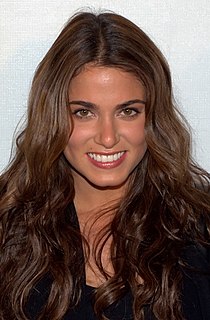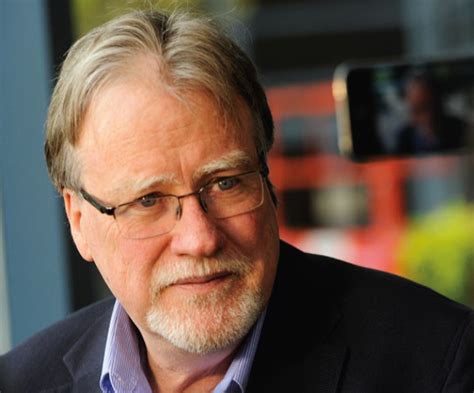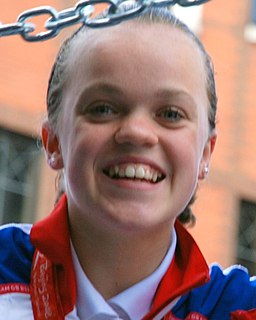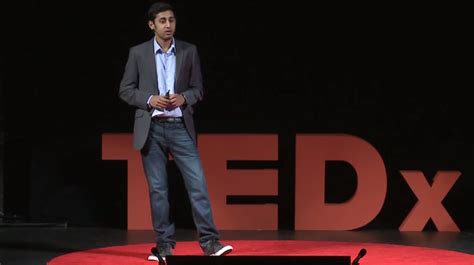Цитата Никки Рид
Важно относиться к каждому как к личности и научиться не обобщать аутизм. При аутизме люди строят предположения, но они очень общие, и все такие разные. Вы должны относиться к каждому человеку как к личности.
Связанные цитаты
Не заставляйте тело влезать в одежду. Это действительно так, это действительно уважение к человеку и попытка удовлетворить его потребности. И я думаю, это то, что действительно важно для каждого из нас, общаясь друг с другом в обществе, это смотреть на человека перед собой, смотреть на человека перед собой и относиться к этому человеку как к уникальному индивидуальному существу. И я думаю, что мы лучше ладим, не только в моде, но и в том, что касается повседневного общения с людьми.
Общее ощущение таково, что если вы не относитесь ко всем одинаково, вы проявляете пристрастность. Для меня это когда ты проявляешь наибольшую пристрастность, когда ты относишься ко всем одинаково. Вы должны относиться к каждому человеку так, как, по вашему мнению, он заслуживает и заслуживает, всегда признавая, что вы несовершенны и часто будете ошибаться в своих суждениях.
Я думаю, что если бы я мог провести какое-либо исследование аутизма, которое мне хотелось бы провести, я бы взял выборку людей с классическим ранним детским аутизмом и сравнил их с тем, что я называю «классическим аутизмом с поздним началом», то есть с людьми. Я думаю, мы обнаружим, что причина аутизма у детей, у которых аутизм с рождения, вероятно, отличается от причины у тех, у кого аутизм проявляется поздно.
Аутизм — это не то, что есть у человека, или оболочка, внутри которой он заперт. За аутизмом не скрывается нормальный ребенок. Аутизм — это способ существования. Это всепроникающее; оно окрашивает каждый опыт, каждое ощущение, восприятие, мысль, эмоцию и встречу — каждый аспект существования. Невозможно отделить аутизм от человека, а если бы это было возможно, человек, которого вы оставили бы, не был бы тем человеком, с которым вы начали.
Я думаю, что одна из проблем с определением аутизма заключается в том, что мы продолжаем его расширять. Это началось как «ранний детский аутизм», потом стало «аутизмом», а теперь это «расстройство аутистического спектра». Я не против этого с точки зрения расширения нашего кругозора и т.д. Но с исследовательской точки зрения термин «аутизм» теряет свою специфичность.
Относитесь ко всем с таким же уважением, с каким вы хотели бы, чтобы относились к вам. Для этого потребуется коллективная группа людей. Нет ни одного человека, который собирается это изменить. Потребуется, чтобы несколько человек вышли, узнали друг друга и полюбили друг друга, независимо от их политических взглядов или происхождения.
Это не так уж часто, но есть феномен, когда аутизм может ухудшиться примерно в двухлетнем возрасте. Есть некоторые разногласия по поводу того, является ли регрессия важной частью аутизма, но многие люди считают, что очень трудно диагностировать аутизм до того, как вы сможете начать по-настоящему подробно разговаривать с ребенком.
Легкий аутизм может дать вам гения вроде Эйнштейна. Если у вас тяжелый аутизм, вы можете оставаться невербальным. Вы же не хотите, чтобы люди находились на крайнем конце спектра. Но если бы вы избавились от всей генетики аутизма, у вас не было бы ни науки, ни искусства. Все, что у вас будет, это кучка социальных «яков-яков».
Если у вас есть ребенок с аутизмом, и у него или у нее хороший интеллект, без задержек в изучении языка, может быть, в аутизме тоже есть преимущество? Может быть, это дает им лучшее понимание математики или естественных наук? Ведь суть науки и суть аутизма в том, чтобы замечать закономерности, которые не заметили другие.
Дело в том, что аутизм бывает разным, понимаете, переменным. И вы начинаете с определенного количества, вы знаете, точки, где различия в мозге будут просто вариантом личности и, например, для очень легкой формы синдрома Аспергера. Но вы попадаете в более тяжелые формы аутизма, когда очевидна задержка речи, очевидное ненормальное поведение у двух- и трехлетнего ребенка, вы знаете, начальная неврология отличается от случая к случаю. Но всем детям с аутизмом будет лучше, если они получат действительно хорошее образовательное вмешательство.































